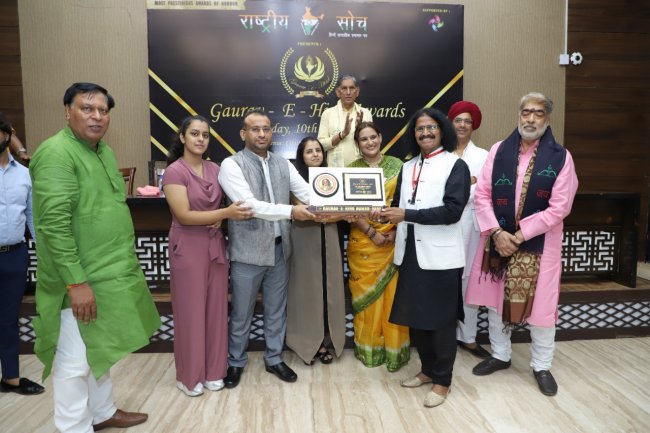Silent Force, Loud Impact
Hari Chandana’s Mission-Driven Bureaucracy

In an age of amplified visibility and spotlight-seeking leadership, there are still those who quietly move systems, transform communities, and build legacies that speak for themselves. IAS officer Hari Chandana is one of those rare leaders.
She may not grace magazine covers or dominate prime-time debates, but in Telangana’s administrative circles, and more importantly, among the people she’s served—Hari Chandana is a movement.
Her journey offers one of the most inspiring case studies for UPSC aspirants who dream of making a real difference in governance.
With degrees from the University of Hyderabad and the London School of Economics, she combines deep academic understanding with sharp ground-level sensitivity. And yet, her greatest qualification has been her ability to listen, adapt, and act where it matters the most: on the ground, with people.
Whether it’s Hyderabad’s first Pet Park, the rollout of over 200 self-sustaining “Loo-Cafés”, or the pioneering She-Toilets project for women’s sanitation—Hari Chandana’s administrative philosophy is rooted in public dignity and systemic innovation. She brings heart into the hardest of government systems.
As the Collector of Narayanpet, one of Telangana’s most underserved districts, she launched ‘Aarunya’, a district-led platform connecting rural women-led SHGs to metro markets. She not only provided livelihoods but also instilled a sense of entrepreneurship and pride among rural women.
During the COVID-19 lockdown, while the world focused on crisis, she focused on rebuilding rural resilience—creating surplus income for weavers and SHG women by mapping local resources to national demand. It was a textbook case of empathetic leadership combined with agile execution.
Her work goes beyond projects—it speaks to values. Whether enabling ISO-certified green buildings or ensuring coding and app development training for government school kids, her focus remains clear: build sustainable systems that outlast tenures and titles.
That’s why her role in Miss World 2025’s Telangana showcase was so much more than ceremonial. As drones danced across the Hyderabad sky, forming visuals of flagship welfare schemes and inclusive policies, it was Hari Chandana’s voice that narrated the soul of Telangana—not with pomp, but with poise.
She spoke of a young state finding its feet, drawing strength from its heritage while embracing a future defined by equity and purpose. Her narration wasn’t about personal achievement—it was about collective intent. And that’s precisely the model of governance aspirants today need to internalize.
Her story reminds us that success in civil services isn’t about power—it’s about impact. It’s about quietly shifting the needle toward justice, inclusion, and opportunity. Hari Chandana’s leadership proves that the IAS is not just an exam to crack—but a commitment to uphold.
To the thousands preparing for UPSC with hopes of bringing about change, her journey offers a blueprint: Be silent when needed. Be strong when it counts. And let your work speak loudest.
In a world chasing instant recognition, Hari Chandana IAS stands as a timeless example:
That governance can be graceful. That service can be sincere. And that change—real, lasting change—often comes in silence.
What's Your Reaction?




















